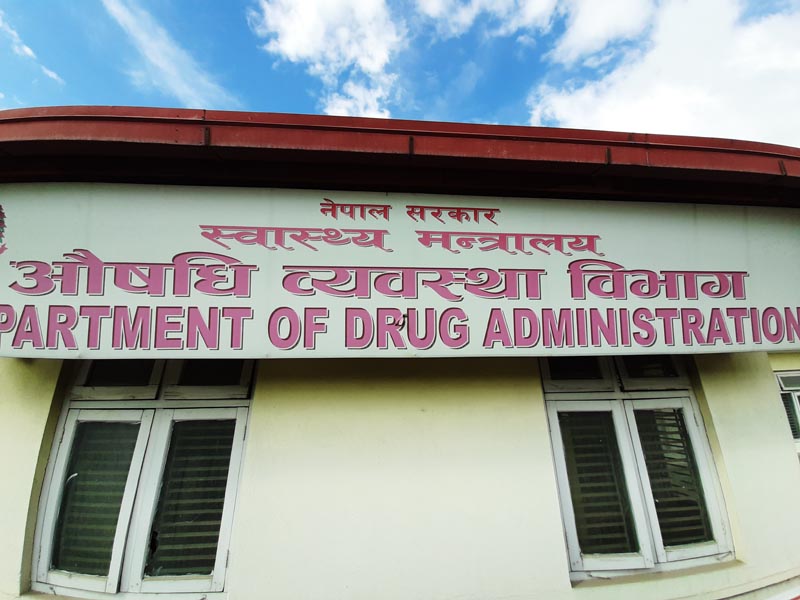DDA lacks equipment to test impurity in prescription drug Ranitidine
Kathmandu, October 15
Though the Department of Drug Administration, Nepal’s drug regulatory authority, has directed all pharmaceutical manufacturers and suppliers to avoid N-nitrosodimethylamine impurity in ranitidine, the department itself doesn’t have equipment to conduct the necessary tests. Randitidine is used to treat ulcers of the stomach and intestines.
International Agency for Research on Cancer has classified N-nitrosodimethylamine impurity as carcinogenic to humans. US Food and Drug Administration has recommended Liquid Chromatography-High Resolution Mass Spectrometry testing protocol to test samples of ranitidine. LC-HRMS is a method used to determine impurities in drugs.
“We don’t have equipment for the test,” said Pan Bahadur Chhetri, acting director at the Department of Drugs. “However, to ensure patient’s safety, we have told all pharmaceutical manufacturers and suppliers to avoid N-nitrosodimethylamine impurity in raw materials, manufactured medicines and supply of ranitidine. We can ask for analysis reports of the raw materials and manufactured medicines from suppliers,” Chhetri added.
Releasing a statement, the US Food and Drug Administration had said some ranitidine medicines, contained a nitrosamine impurity called N-nitrosodimethylamine at low levels. N-nitrosodimethylamine has been classified as a substance that could cause cancer, based on results from laboratory tests. N-nitrosodimethylamine is a known environmental contaminant and is found in water and food, including meats, dairy products, and vegetables.
Ranitidine is a commonly prescribed medicine for countering acidity and is on World Health Organisation’s Model List of Essential Medicines.
Ranitidine is an over-the-counter and prescription drug. Ranitidine is an H2 (histamine-2) blocker, which decreases the amount of acid created by the stomach. Over-the-counter ranitidine has been approved to prevent and relieve heartburn associated with acid ingestion and sour stomach. Prescription ranitidine is approved for multiple indications, including treatment and prevention of ulcers of the stomach and intestines and treatment of gastroesophageal reflux disease, according to the US Food and Drug Administration.
The national drug regulatory authority does not have records of how many versions of the drug are been sold in the Nepali market.






